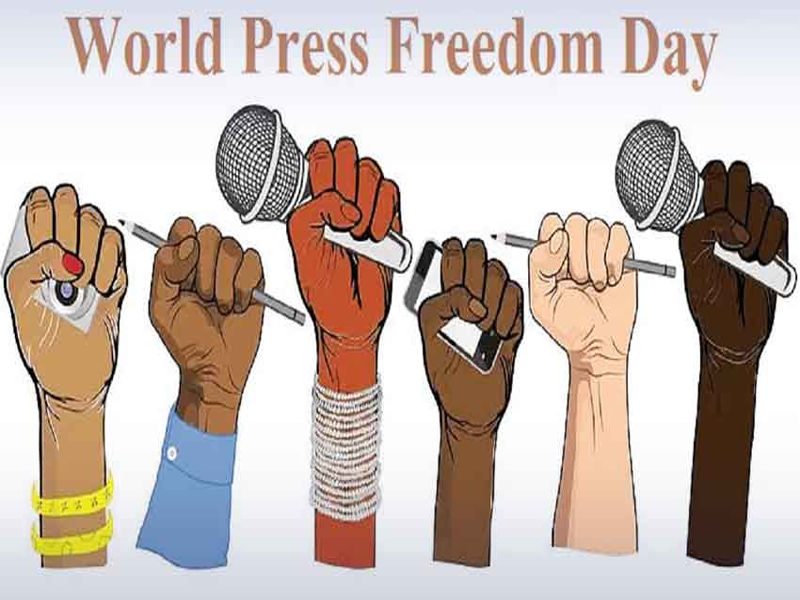Upholding Press Freedom: The Status of Journalists' Liberties in Pakistan

- 211
- 0
Freedom of the press stands as a cornerstone of democracy, ensuring transparency, accountability, and the dissemination of diverse viewpoints.
In Pakistan, like in many countries, the freedom of journalists has been a subject of scrutiny and debate. While significant strides have been made in recent years to safeguard press freedom, challenges persist, highlighting the ongoing struggle for journalistic liberties in the country. Progress and Challenges Legal Protections: Pakistan's Constitution guarantees freedom of expression and the press. Additionally, the country has laws in place to protect journalists and ensure their safety while performing their duties.
However, implementation and enforcement of these laws remain inconsistent, leaving journalists vulnerable to harassment, intimidation, and violence, particularly when reporting on sensitive topics such as corruption, terrorism, and human rights abuses.
Threats and Intimidation: Journalists in Pakistan often face threats and intimidation from various sources, including state actors, political parties, militant groups, and powerful individuals. Instances of physical attacks, harassment, abduction, and even extrajudicial killings have been reported, creating a climate of fear and self-censorship among media professionals.
Such hostile environments undermine journalists' ability to report freely and hold power to account, stifling the democratic process and limiting the public's right to information. Censorship and Control: Despite constitutional guarantees of press freedom, censorship and control mechanisms persist in Pakistan, exerting pressure on media outlets and journalists.
Government authorities, security agencies, and powerful interest groups often seek to influence editorial content, suppress dissenting voices, and manipulate public narratives through various means, including advertising revenue, regulatory measures, and legal threats. Such constraints on media independence undermine the credibility and integrity of journalism, eroding public trust in the fourth estate.
Digital Challenges: With the proliferation of digital media platforms and social networking sites, journalists face new challenges and opportunities in the digital age. While online platforms offer avenues for independent reporting and citizen journalism, they also expose journalists to online harassment, cyberattacks, and misinformation campaigns. Furthermore, government efforts to regulate online content and curb digital freedoms pose additional threats to press freedom and freedom of expression in Pakistan.
The Way Forward Strengthening Legal Frameworks: Pakistan must strengthen its legal frameworks to protect journalists' rights and hold perpetrators of violence and intimidation accountable. This includes ensuring swift and impartial investigations into attacks on journalists, prosecuting perpetrators, and providing adequate legal and institutional support to media professionals.
Promoting Media Pluralism: Efforts should be made to promote media pluralism and diversity, fostering an environment where journalists can operate independently and without fear of reprisal.
This includes safeguarding editorial independence, supporting alternative and independent media outlets, and promoting transparency and accountability in media ownership and financing. Enhancing Safety Measures: Measures should be taken to enhance the safety and security of journalists, including providing training on digital security, establishing emergency response mechanisms, and offering psychosocial support to journalists facing trauma and harassment. Additionally, authorities should ensure the protection of journalists covering conflict zones and volatile areas.
Fostering Public Awareness and Advocacy: Public awareness campaigns and advocacy efforts are essential to raise awareness about the importance of press freedom and the role of journalists in democratic societies. Civil society organizations, media watchdogs, and international partners can play a crucial role in advocating for journalists' rights, monitoring press freedom violations, and holding authorities accountable for their actions.
While Pakistan has made strides in upholding press freedom, challenges persist, necessitating continued efforts to protect journalists' liberties and ensure a vibrant and independent media landscape. By strengthening legal protections, promoting media pluralism, enhancing safety measures, and fostering public awareness and advocacy, Pakistan can uphold the fundamental principles of democracy and ensure that journalists can report freely and without fear.
Only then can the country realize its full potential as a thriving democracy committed to freedom of expression and the press.

















































